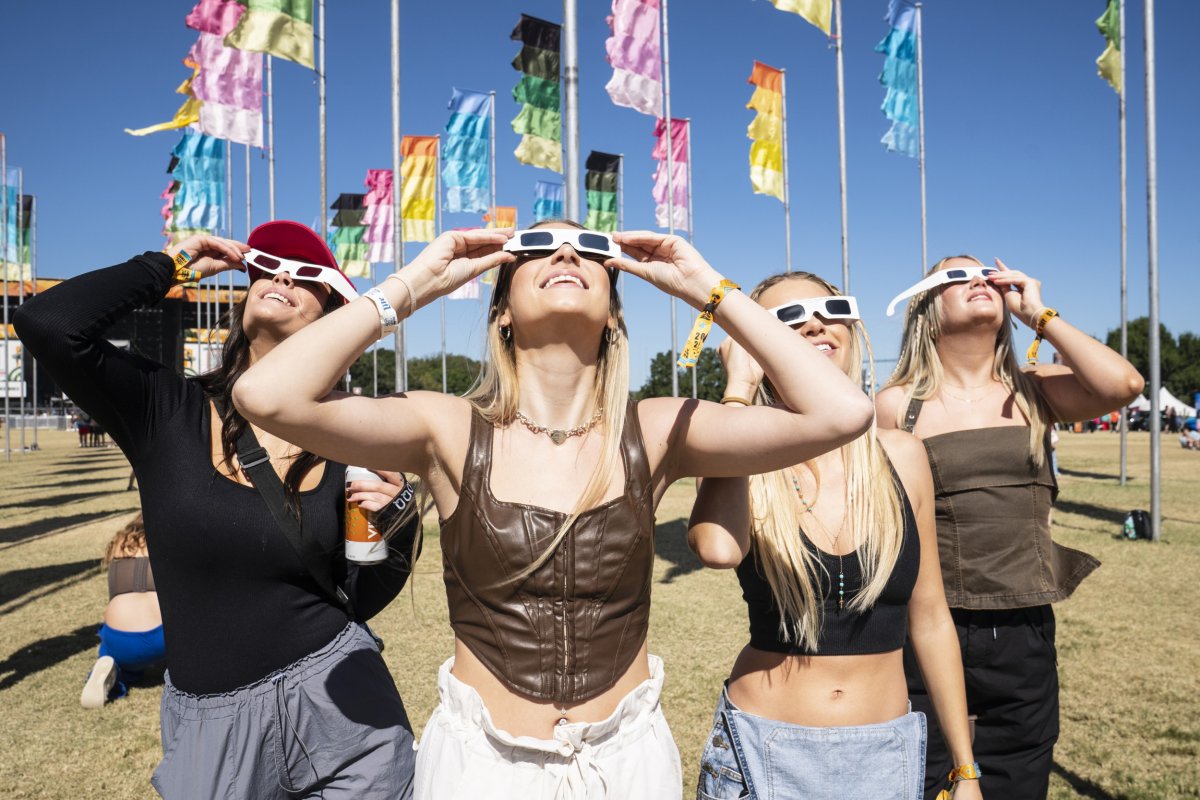The upcoming solar eclipse has plenty of implications beyond its astronomical significance. For the cities and towns situated around the solar eclipse's direct line of sight, the event means a heavy boost to the local economy.
A report by Navan, a travel and expense management company, says bookings for hotels, flights and car rentals have surged by up to three times what they are the week before the eclipse, which takes place April 8.
Hotel bookings skyrocketed by 315 percent. Americans are eager to fly to see the solar eclipse, as flight bookings saw an uptick of 110 percent. And rental car booking sales grew by 212 percent.

In 2017, the last time a solar eclipse was visible in a large area of the United States, 88 percent of American adults watched the event either in person or online. This year, it will be visible in such places as Austin, Texas; Little Rock, Arkansas; Buffalo, New York; and Cleveland. From Mexico, the eclipse's path will enter the United States in Texas and go as far north as Vermont, New Hampshire and Maine before exiting the continent in Canada.
Read more: 15 Ways to Save Money For Your Next Trip
This total solar eclipse, when the moon completely blocks out the sun's light, will be followed by a 20-year break.
Almost 500 U.S. cities will be in the path of the eclipse's full totality, and many Americans have planned trips to places where they can experience it.
The surge in travel bookings is most concentrated in Texas, which has several big cities in the eclipse's direct line of sight. Dallas has a 571 percent boost in hotel bookings, followed by Austin (421 percent); Columbus, Ohio (238 percent); and Indianapolis (130 percent).
Because there's higher demand in certain areas, solar eclipse travelers can expect hefty costs on everything from their hotel reservation to airfare and car rental prices.
Niagara Falls, New York, has the most extreme price hikes, with hotel booking costs soaring by 249 percent nightly on average. Waco, Texas, prices have climbed by 81 percent, while in Burlington, Vermont, prices jumped 35 percent. Cleveland and Austin saw similar price hikes, with costs rising by 33 and 34 percent, respectively.
Some of the cheapest cities and towns along the solar eclipse's path are Evansville, Indiana; Lubbock, Texas; and Plano, Texas. For all three, prices for hotel booking were actually down compared with the week before.
Read more: Compare Top Travel Rewards Credit Cards
Thomas Pratter, the CEO and founder of cryptocurrency hub Autowhale, said he's charging $300 per night on the eve of the eclipse to rent out his property and expects other homeowners in the path to make similar money.
"The response from potential renters has been positive, with several bookings already," Pratter told Newsweek. "I saw this as an opportunity to earn extra income due to the high demand for accommodations during the eclipse."
Some city governments are preparing for the event with celebrations.
Bloomington, Indiana, for example, is prepping for an influx of 300,000 visitors just for the event, in what will likely be a huge boon for local businesses. This could affect restaurants as well as hotels, which expect to fully be booked during the eclipse period.
"For regions like Indiana, such events are more than just short-term gains,"
said Phil T. Powell, executive director of the Indiana Business Research Center and a clinical associate professor of business economics and public policy at Indiana University's Kelley School of Business.
"They're a chance to showcase themselves as prime destinations for relocation and business investment," he told Newsweek.
Uncommon Knowledge
Newsweek is committed to challenging conventional wisdom and finding connections in the search for common ground.
Newsweek is committed to challenging conventional wisdom and finding connections in the search for common ground.
About the writer
Suzanne Blake is a Newsweek reporter based in New York. Her focus is reporting on consumer and social trends, spanning ... Read more
To read how Newsweek uses AI as a newsroom tool, Click here.








